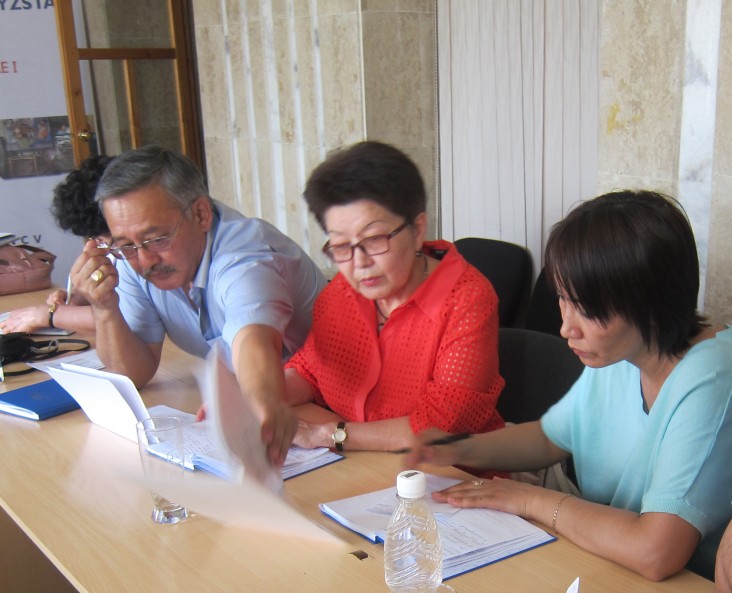
Feb. 2015—Каzakhstan is among the world’s 27 high-burden countries for multidrug-resistant tuberculosis (MDR-TB). Almost one in five new TB cases are MDR-TB, and half of all returning patients who had previously been treated for TB have since contracted MDR-TB.
Kazakhstan’s National TB Program has made great strides in modernizing its TB strategy since 1998, following World Health Organization guidelines. The current TB program, based on the 2006 Stop TB Strategy, has significantly improved the TB situation in the country.
Since 2012, more than 10,500 MDR-TB patients have been registered in the country.
In 2012, USAID’s TB CARE I project introduced new rapid diagnostic tools to Kazakhstan to more quickly diagnose MDR-TB and facilitate more effective treatment. To build on this success, the National TB Program requested technical input from USAID for the development of national guidelines on MDR-TB that could direct all health professionals across the country to more effectively treat MDR-TB and lower the country’s burden.
A team of national clinical practitioners led by TB CARE I worked collaboratively to draft the guidelines, drawing on best practices, practical research and professional experience. External experts reviewed the draft and the final guidelines were subsequently approved by the TB Department of the Ministry of Health in early September 2014.
The successfully completed policies are now available to clinicians, researchers and medical staff nationwide, and are offering patients hope as MDR- TB can now be more effectively managed in Kazakhstan.
“The newly developed MDR-TB guidelines were urgently needed now to respond effectively and in a timely manner to the needs of the patients with drug-resistant TB in our country,” said Elmira Berikova, deputy director of the National TB Center.
The TB CARE I project, which runs from 2010 to 2015, is designed to control the spread of TB, MDR-TB and TB/HIV.
LINKS
Follow @USAIDCtrAsia, on Facebook, on Flickr, on YouTube







Comment
Make a general inquiry or suggest an improvement.